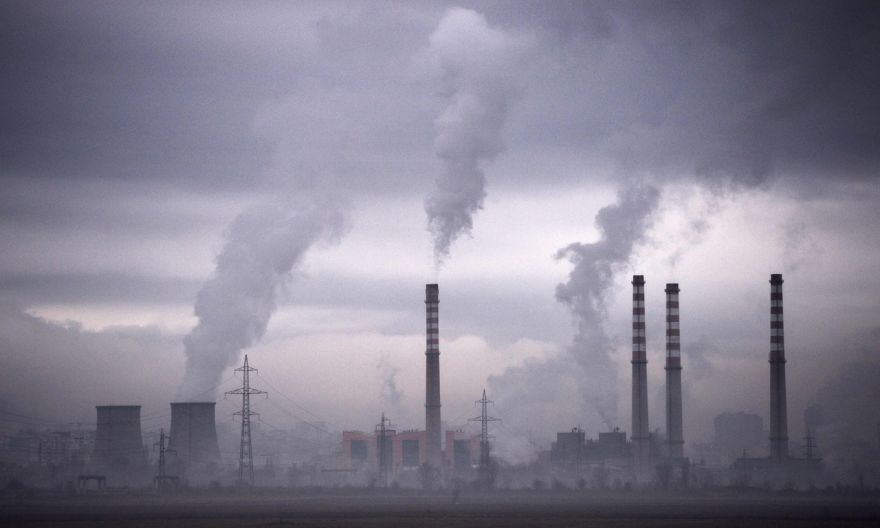Concern grows in developed countries on climate change, people willing to make changes: Pew Survey

WASHINGTON – More people in developed economies believe climate change will harm them personally at some point in their lives, a new Pew Research Centre survey has shown.
They are also willing to make changes to help mitigate climate change.
But there is a little less confidence in the international community – and especially the United States and China – leading the way to combat it.
“There’s not overwhelming confidence in the international community and in its efforts to deal with it” Mr Jacob Poushter, associate director of research at Pew, told The Straits Times.
“At the same time, though, there is more confidence in supranational bodies, like the UN and the EU, to deal with this issue than there are for individual countries, like the United States and China,” he added.
The new Pew data on public attitudes came as the World Bank separately warned that without immediate action to curb climate change, rising sea levels, water scarcity and declining crop productivity could force 216 million people to migrate within their own countries by 2050.
Based on modelling of the impact of climate change on six regions, the World Bank report, titled Groundswell 2.0, concluded that climate migration “hot spots” will emerge as soon as 2030 and intensify by 2050.
Poorer regions will be hardest hit. Sub-Saharan Africa alone would account for 86 million of the internal migrants, with 19 million more in North Africa. South Asia would see 40 million and East Asia and the Pacific 49 million.
The Pew Research phone survey involved 16,254 adults in 17 advanced economies, including Singapore, from March 12 to May 26.
In Germany, the share of people “very concerned” about the personal ramifications of global warming increased by 19 percentage points, from 18 to 37 per cent, since 2015, the survey revealed.
Similar double digit jumps were also registered in the United Kingdom, Spain, Australia and South Korea.
Only Japan (minus 8 points) saw a significant decline in the share of citizens deeply concerned about climate change, Pew said. Views in the US have not changed significantly since 2015.
People in the Asia-Pacific – from 64 per cent in Australia to 88 per cent in South Korea – were more worried about climate change causing them personal harm. About one-third or more in Singapore and Australia as well said they were very concerned climate change would harm them personally.
“The share who are very concerned that climate change will harm them personally at some point during their lives has increased significantly since 2015 in nearly every country where trend data is available,” the Pew report said.
There is also widespread sentiment among people that climate change is already affecting the world around them and young adults are more concerned than older adults, the survey found.
The widest age gap was in Sweden, where 65 per cent of 18- to 29-year-olds were at least somewhat concerned about the personal impact of climate change in their lifetimes, compared with just 25 per cent of those 65 and older. Sizable age differences were also found in New Zealand, Australia, the US, France and Canada.
Majorities in each of the advanced economies surveyed said they were willing to make at least some changes in how they live and work to address the threat of global warming. Across all 17 countries polled, a median of 34 per cent were willing to consider “a lot of changes” to daily life.
“Generally, those on the left of the political spectrum are more open than those on the right to taking personal steps to help reduce the effects of climate change,” the Pew report noted. “This is particularly true in the US, where citizens who identify with the ideological left are more than twice as willing as those on the ideological right (94 versus 45 per cent) to modify how they live and work.”
Other countries where those on the left and right are divided over whether to alter their lives and work in response to global warming include Canada, the Netherlands, Australia and Germany.
“In 12 of the 17 publics polled, half or more think their own society has done a good job dealing with global climate change,” the report says. “But only in Singapore (32 per cent), Sweden, Germany and New Zealand (14 per cent each) and the UK (13 per cent) do more than one in 10 describe such efforts as “very good”.
Fewer than half in Japan, Italy, the US, South Korea and Taiwan had favourable views of their society’s climate response.
Internationally, the European Union and the United Nations earn praise for their responses to climate change. But both the US and China get poor marks.
Only Singaporeans were slightly positive in their assessment of American efforts (53 per cent said the US was doing a “good job” of addressing climate change).
Views of China were worse. A median of 78 per cent across the 17 countries described China’s handling of climate change as “bad” – including 45 per cent who described it as “very bad.”
What emerges from the data is a mixed bag, Mr Poushter said.
“In a personal sense, there’s a lot of concern, but the lack of confidence in international communities or the two largest carbon emitters to do something about it, I think tempers some of that optimism.”





